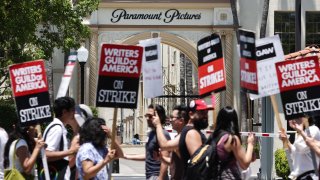
- More workers across industries have taken a hard stance against companies for dramatic improvements in compensation and working conditions.
- More than 320,000 workers have participated in at least 230 strikes so far this year, according to data from the Cornell University School of Industrial and Labor Relations.
- UPS workers and airline pilots have won rich labor deals. Hollywood writers and actors as well as auto workers could be next.
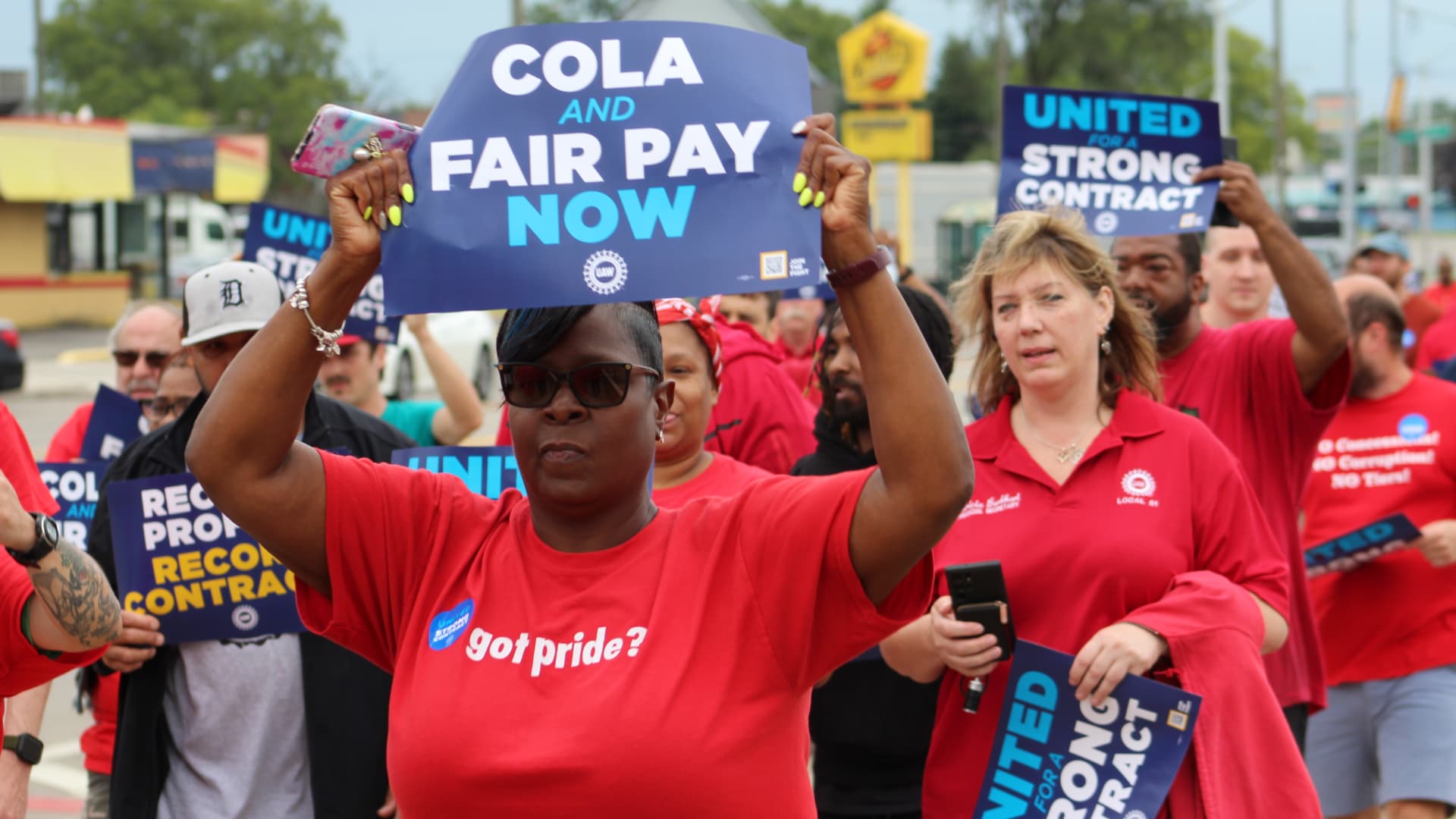
From writers' rooms to car factories, workers are pressing companies for higher pay and better quality of life. Many are willing to walk off the job to get there, and some are winning.
Emboldened in the wake of shifting job security and grueling conditions during the Covid-19 pandemic, skyrocketing company profits, inflation, a decades-high approval rating for labor unions and growing disparity between worker pay and executive compensation, more workers across industries have taken a hard stance against companies for dramatic improvements in compensation and working conditions.
Get New England news, weather forecasts and entertainment stories to your inbox. Sign up for NECN newsletters.
Some, like UPS' workers' union, are nailing down record labor deals following threats of striking. Others have gone on strike to force the issue. Workers at key Boeing supplier Spirit AeroSystems in June approved a deal with the company after a brief work stoppage. Writers Guild of America members have now been on strike for more than 100 days.
The rich contracts and work stoppages in recent months follow high-profile organizing efforts by workers across the country that started prior to the Covid-19 pandemic and have grown increasingly more intense following the global health crisis, affecting companies from Amazon and Starbucks to airlines and automakers.
"The pandemic shook the ground of everybody," said Robert Bruno, director of the Labor Studies Program at the University of Illinois Urbana-Champaign.
Money Report
More than 320,000 workers have participated in at least 230 strikes so far this year, according to data from the Cornell University School of Industrial and Labor Relations. That's already higher than the roughly 224,000 workers who participated in roughly 420 strikes in 2022, due in large part to tens of thousands of striking workers with the Screen Actors Guild – American Federation of Television and Radio Artists and Writers Guild of America.
"Major" strikes involving 1,000 or more workers so far amount to just 16 such work stoppages this year, according to the U.S. Bureau of Labor Statistics. That compares to a recent high of 25 recorded major work stoppages in 2019 and 23 last year.
The actions have led to more organizing efforts and greater support by Americans for organized labor. Gallup reports 71% of Americans approved of labor unions in 2022 — the highest since 1965.
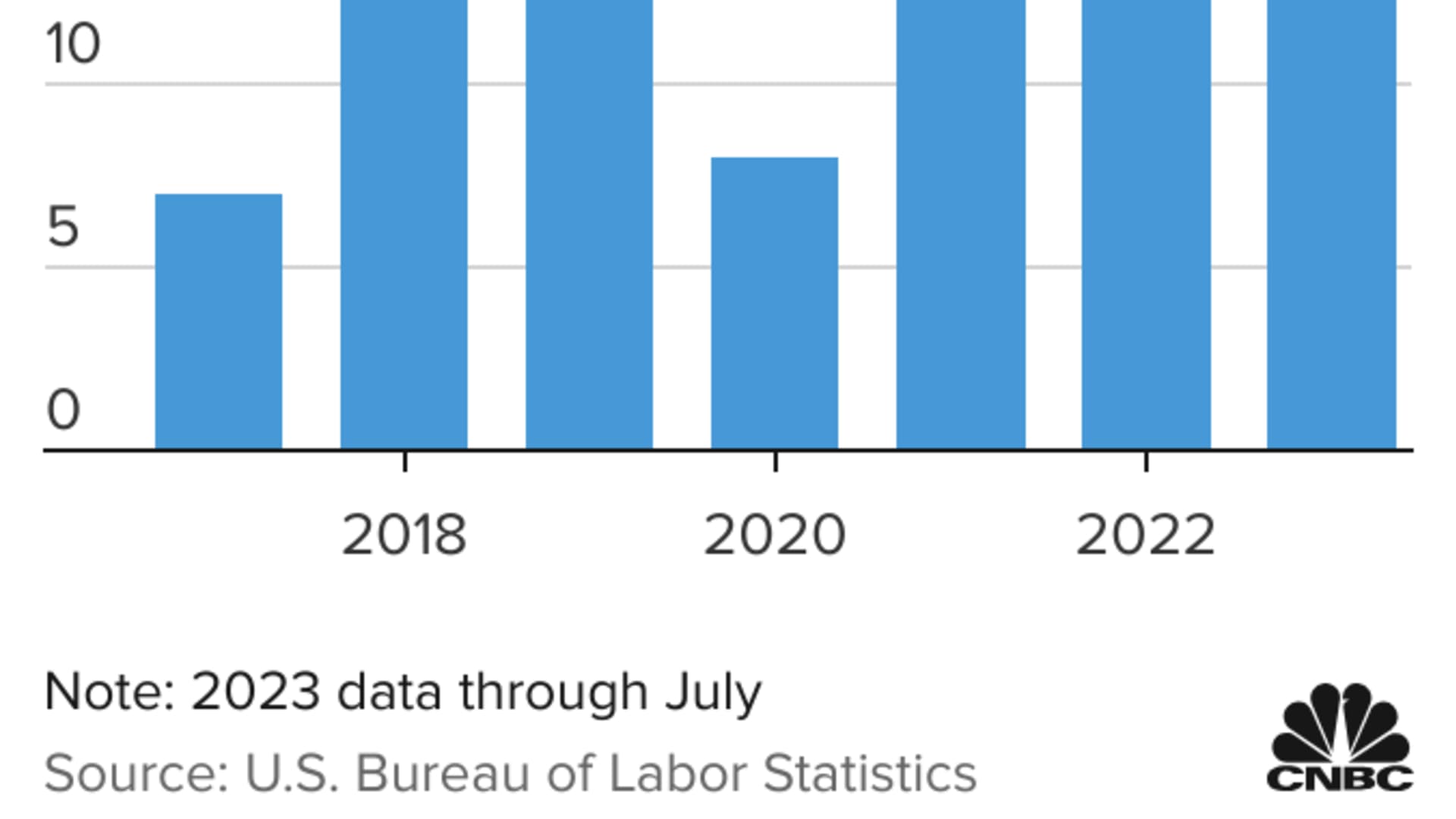
There's potentially more striking ahead.
The United Auto Workers is in the middle of national contract negotiations for nearly 150,000 workers with General Motors, Ford Motor and Stellantis, with an 11:59 p.m. Sept. 14 deadline fast approaching.
"I don't want to strike, but I will. I will absolutely," said Daniel "Chris" Wells, a Stellantis employee and UAW member of about three years. "Whatever it takes to get what we need and what we deserve."
UAW President Shawn Fain on Friday said the union's goal is not to strike, but that it will do so to win a "fair and just contract." However, the pugnacious union leader has been more combative and quicker to use strike rhetoric than previous union leaders.
Big contracts
Many of the work stoppages so far this year have led to major victories for union members.
Following strikes against companies such as Deere and CNH Industrial, the UAW achieved much of what it was demanding: double-digit wage gains, addition or improvements of pensions and restoration of cost-of-living adjustments.
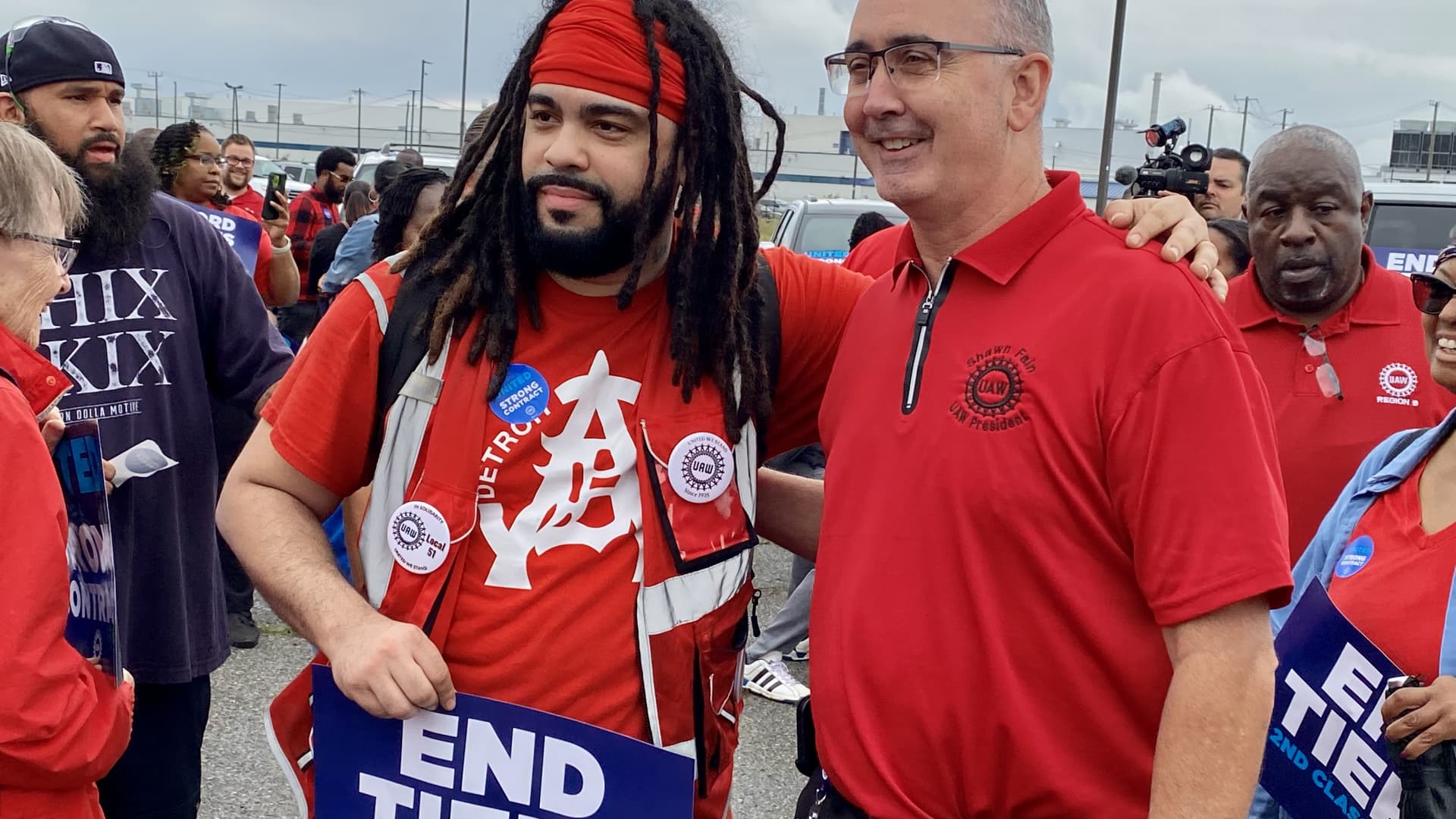
It's now calling for similar improvements from the Detroit automakers, following other high-profile collective bargaining wins elsewhere in the country.
UPS workers on Tuesday ratified a massive five-year labor deal that includes big wage increases and other improvements to work rules and schedules. The company's drivers — represented by the Teamsters Union, which represents about 340,000 workers at the delivery giant — will average $170,000 in pay and benefits at the end of the five-year deal.
"It's like this perfect storm for workers," said Melissa Atkins, a labor and employment partner at Obermayer. "Individuals are living paycheck to paycheck, and right now they have the bargaining power."
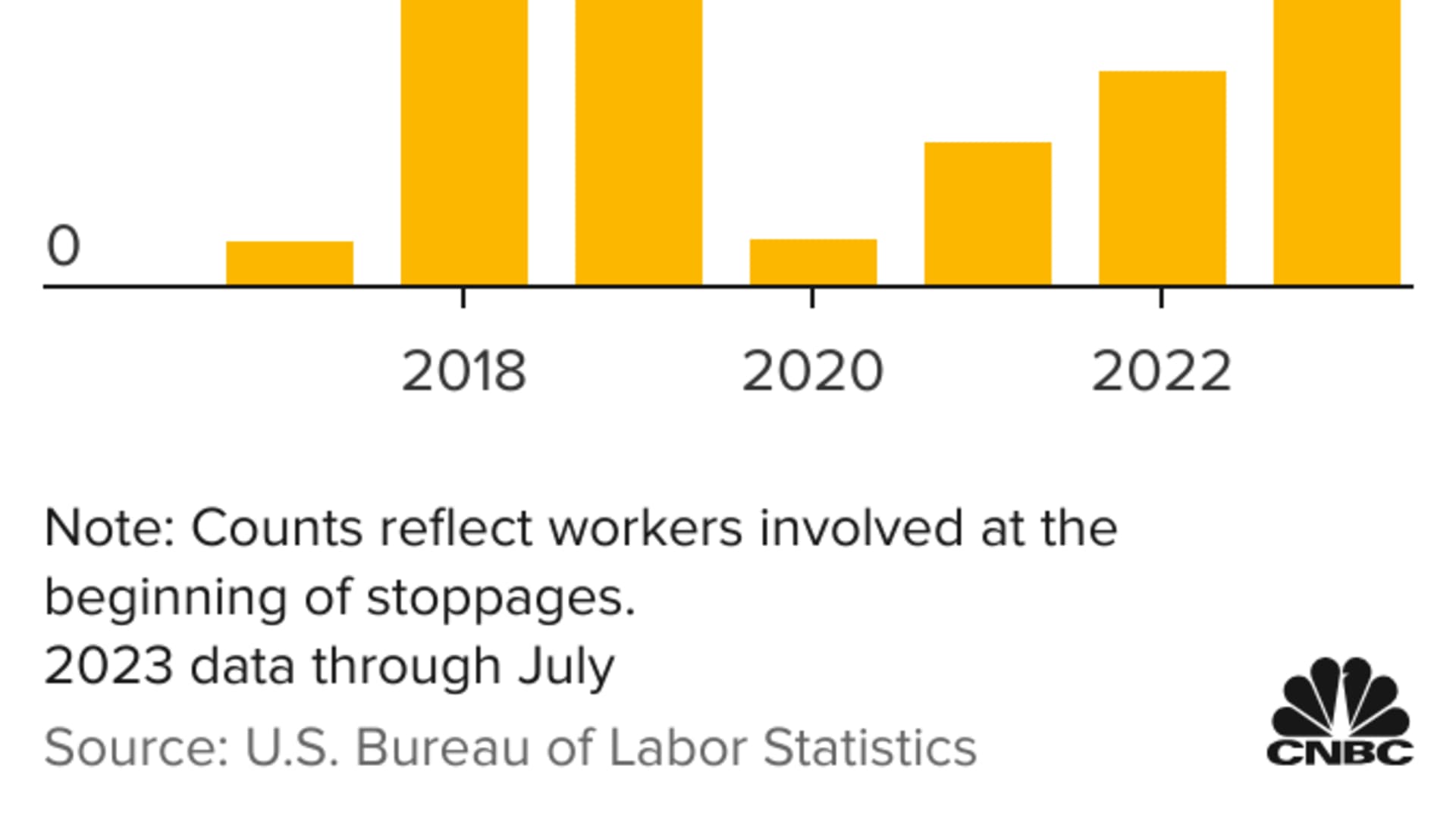
Pilots at Delta Air Lines and American Airlines have ratified contracts worth billions, following months of pickets and strike authorization votes, though pilot strikes are extremely rare and require a long process under U.S. labor law. A pilot shortage has given unions more leverage in labor negotiations.
United Airlines struck a preliminary agreement with its pilots union last month for up to 40% raises over four years. The deal prompted American Airlines to raise its offer for its own pilots.
In airlines, the contract wins are partly the result of a years-long buildup. Airline unions were just starting industry-wide negotiations when the Covid-19 pandemic hit, derailing contract talks. Many employees such as pilots and flight attendants hadn't received raises since their contracted pay increases had expired, even though inflation rose.
Meanwhile, unions complained of grueling schedules, faulting airline management for flight disruptions.
While airlines received $54 billion in taxpayer aid to keep workers in their jobs during the pandemic, carriers urged thousands to take early retirement packages that left them flat-footed when travel demand returned.
In Hollywood, performers and scribes are pushing for higher wages and better backend payouts, tied to the success of streaming. Many have called out often pitiful royalty payments for episodes of a show or a movie that take off on streaming, such as the recent interest in "Suits" on Netflix.
Writers are also pushing for compensation throughout the process of pre-production, production and post-production, a relative rarity in the industry now.
In striking, writers and actors have not only halted production, but have hindered marketing efforts as well. Talent is not permitted to promote any current, future or past work that was part of a studio production, leading some theatrical releases such as Warner Bros. Discovery and Legendary Entertainment's "Dune: Part Two" to flee to 2024.
More than pay
It's not just higher pay that workers are seeking, but an increase in their quality of life, particularly in the wake of pandemic working conditions.
"For unionized workers who are going on strike, it's the first contract that many of them are negotiating since the beginning of the pandemic," said Johnnie Kallas, a Ph.D. candidate and project director for Cornell's ILR Labor Action Tracker. "While a lot of the issues that workers are striking about are certainly not new, the pandemic definitely exacerbated a lot of them."
Hollywood talent are looking for studios to implement new rules including minimum staffing requirements for writers as well as audition provisions, better working conditions and better health and pension benefits for actors. Both the WGA and SAG-AFTRA are also asking for guardrails when it comes to the use of artificial intelligence within the industry.
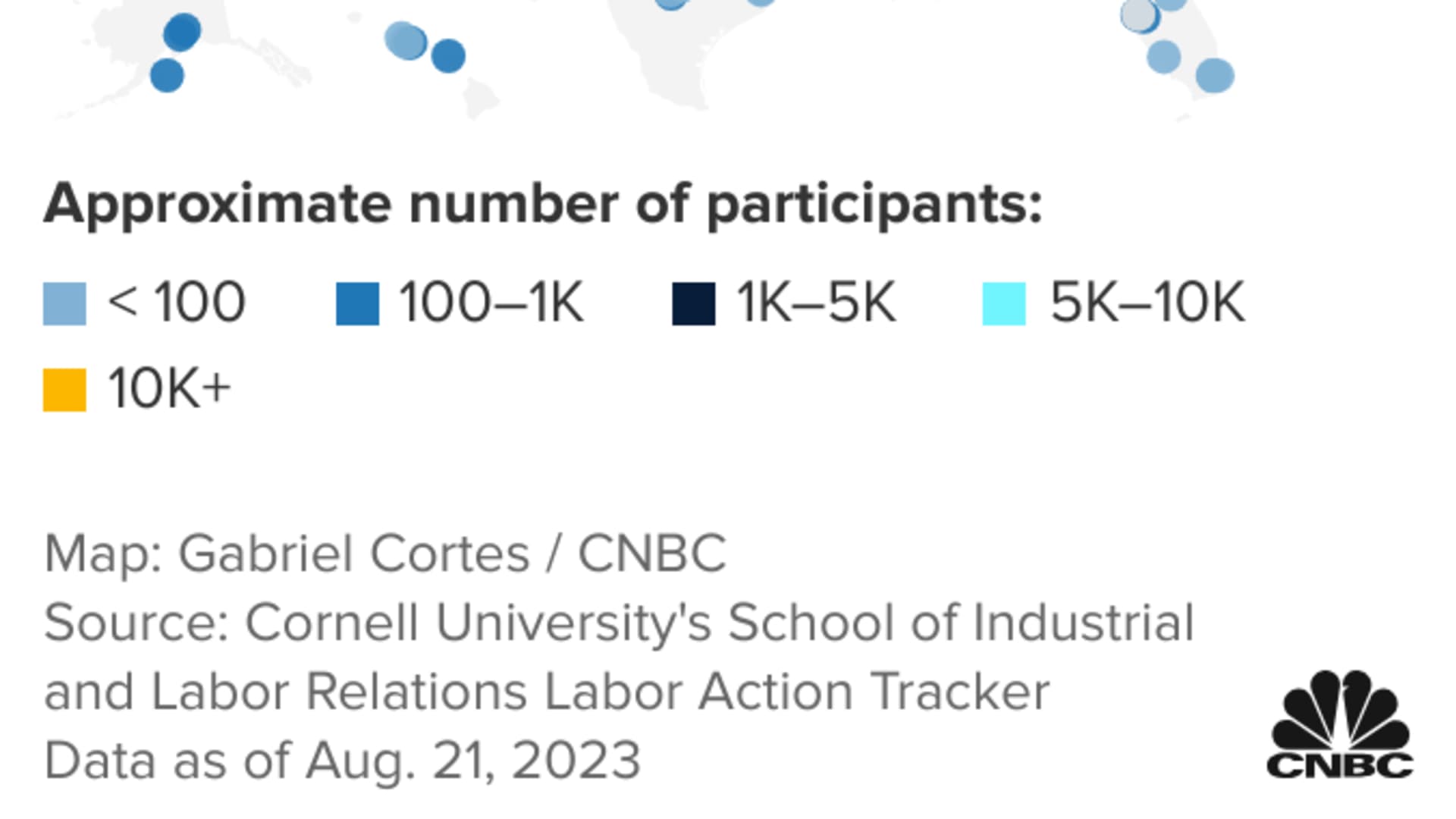
Tensions continue to rise between the two guilds and Hollywood studios. The writers' union and studios have returned to the negotiating table, though with little progress. Negotiations with SAG-AFTRA are likely to wait until WGA talks are settled.
Southwest Airlines is still in negotiations with its pilots' union, which has made better scheduling a core part of negotiations. Casey Murray, president of the Southwest Airlines Pilots Association, said frequent reassignments can wear pilots down, just as they would passengers.
"They need that predictability," he said, adding that the company has made some progress in talks with the pilots' union in recent weeks. He said he is "cautiously optimistic" about reaching a preliminary deal this year, the last of the four largest U.S. carriers to get to that point.
Regaining control of their schedules has been a common theme at several companies, including UPS' Teamsters-negotiated deal. The union won limitations on forced overtime.
"There's an expectation that pay will substantially go up" when workers have more leverage, said UIUC's Bruno. "But it's also a chance to recraft the job."
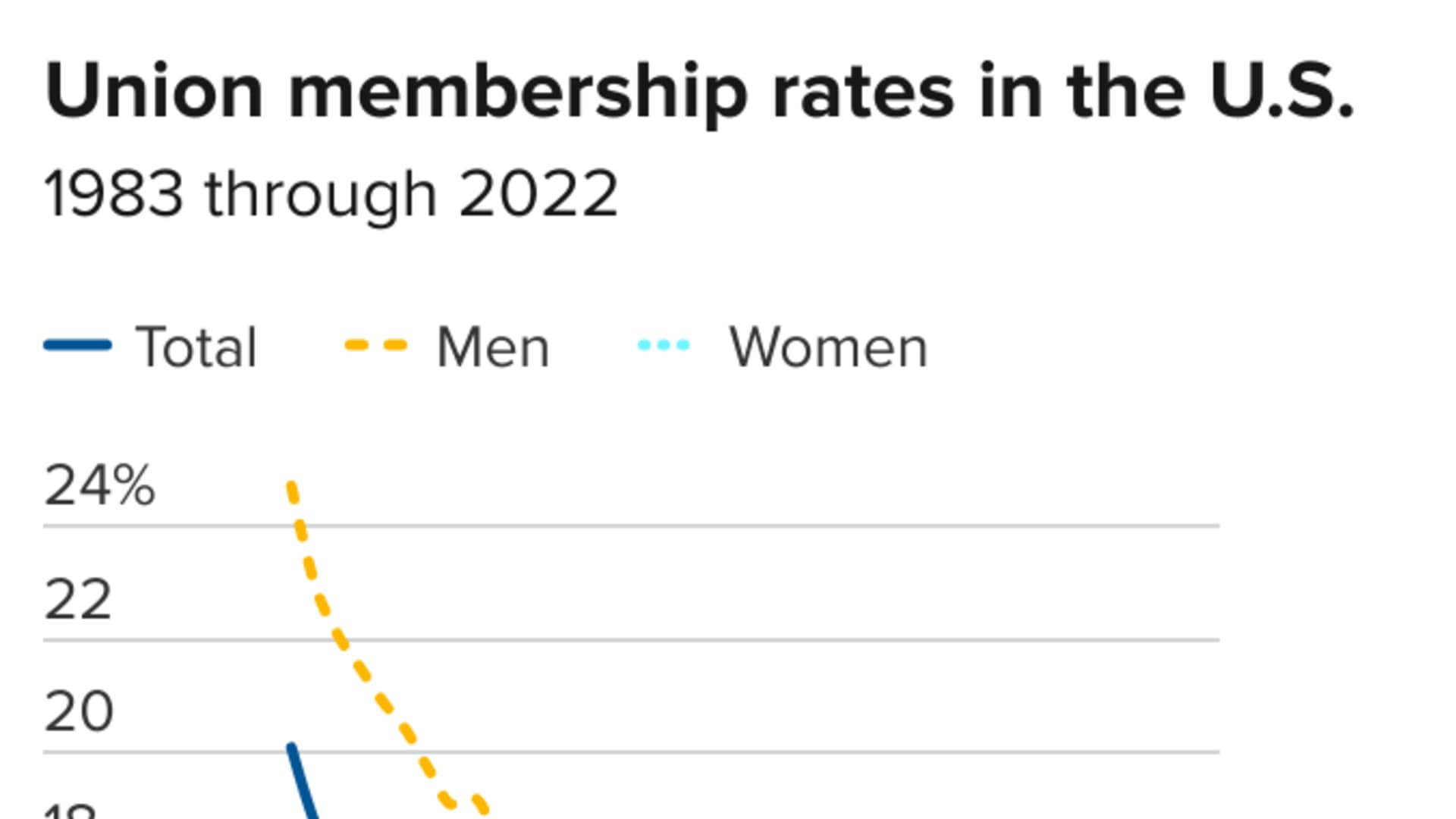
He said it's not only about the number of hours worked but "having a voice in the number of hours" on the schedule and other aspects of how an employee's job is done.
The UAW has targeted improving work-life balance for union members, many of whom are forced to work overtime or potentially lose their jobs. The union has proposed a 32-hour work week to even out circumstances with salaried employees.
"They say the financial people are college educated, well you know what I say to that, big f***ing deal," UAW President Fain said during a rally last week with hundreds of members. "Our members were deemed essential during Covid. If we didn't show up, we lost our damn jobs. Our members were expected to risk their lives and some of them sacrificed their lives, to keep the economy moving during these times — while the 'educated' people, sat safely in their living rooms working remote.
"We deserve the same treatment. Our lives matter, too," he said.
Tony Jordan, an auto repairman and UAW member of more than two decades, works 60 hours a week at a Stellantis plant in Detroit. He said his priorities are maintaining the union's platinum health care, pay increases and the potential 32-hour work week for more time to spend with his new grandchild.
He said he views these talks as a fight for the union's "long-term viability."
"Why not fight now? Not only for us, but the working class," he said.
— CNBC's Sarah Whitten contributed to this report.






